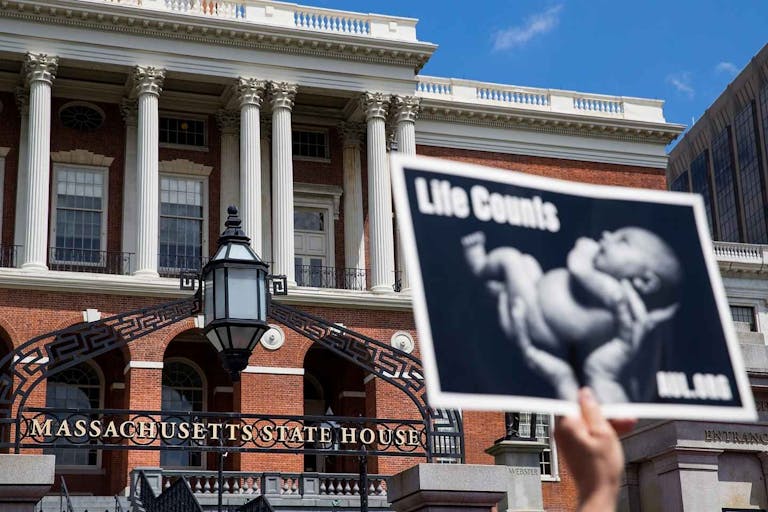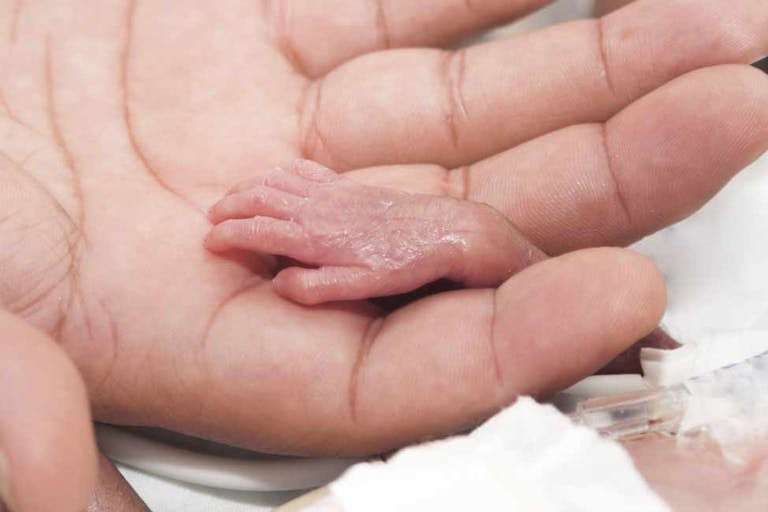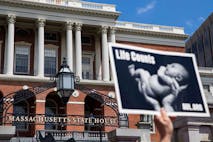
Massachusetts Health Department wants primary care to include abortion
Cassy Cooke
·
Is the Connecticut Department of Public Health set to allow infanticide?
The Connecticut Department of Public Health hosted a public hearing on a proposed regulation to remove both long-standing “born alive” protections for infants who survive abortion, and conscience protections for providers and other regulatory provisions. The hearing was held on September 4, 2024, at their offices in Hartford. The hearing officer and staff listened to over two hours of sometimes heated, in-person and Zoom testimony, mostly from women against the proposed regulation.
“A right to live”
Connecticut State Representative Brian Lanoue (pronounced “Lanoo”) strongly urged the Department to resist making changes that deserve “legislative deliberation,” in order to preserve “checks and balances.” He noted that on the “opening day” of the legislature he “swore an oath” to “protect and defend the Constitution of the United States,” and that that included “life.” He reasoned that if the purpose of abortion is to “end a pregnancy,” then as “soon as that baby is out of the womb that pregnancy is over… mission accomplished” that “at that point, if that baby is alive . . . that baby has a right to live.”
Representative Lanoue was referencing the current proposed regulation’s revisions that would remove several protections for nascent life, including “newborns” who survive abortion. Current section (g) of the regulation states: “If the newborn shows signs of life following an abortion, those appropriate measures used to support life in a premature infant shall be employed.”
Pro-abortion rep denies reality, says abortion merely “ends a pregnancy”
One legislator and leader of a pro-abortion caucus, Representative Gillian Gilchrest, stated that she was refusing to “read it out loud because of how inflammatory it is,” and that abortion simply “ends a pregnancy” — and therefore, the section was “anti-abortion rhetoric and not at all medically accurate.” She asserted that the removal of the section was necessary to bring the regulation up to current “best practices” for a patient’s medical care.
It did not take long for another female commentator to respond that “leaving a born human being on the table to die is not healthcare” and that the other patient “is dead,” and that does not qualify as “successful” for the patient who died.
Department of Public Health caves to pro-abortion pressure to eliminate infant protections
The Department of Public Health was pressured by abortion advocates and providers to depart from their original regulatory proposal last year. Initially, the Department intended to only expand the category of persons allowed to perform an abortion to include midwives, nurses and physician assistants to “ensure conformity” with a new Public Act 22-19.
But after receiving pressure from supporters of abortion, including the Connecticut Hospital Association, the Democrat-appointed Commissioner Manisha Juthani, MD expanded the regulation to remove the “born alive” protections of section (h) and other critical protections.
Testimony from a Planned Parenthood representative during the public hearing state,d “On August 31st, 2023, Planned Parenthood of Southern New England submitted extensive comments during the first comment period on how the proposed regulation could be further amended to improve abortion access in Connecticut….”
These comments remain unpublished, but affected the Commissioner’s decision to eliminate protections for infants born alive, in a post-public-comment period version of the regulation.
Article continues below
Dear Reader,
Have you ever wanted to share the miracle of human development with little ones? Live Action is proud to present the "Baby Olivia" board book, which presents the content of Live Action's "Baby Olivia" fetal development video in a fun, new format. It's perfect for helping little minds understand the complex and beautiful process of human development in the womb.
Receive our brand new Baby Olivia board book when you give a one-time gift of $30 or more (or begin a new monthly gift of $15 or more).
Conscience protections for health care providers removed
Conscience protections for health care providers were also removed in the proposed regulation. Section (f) of Connecticut’s current regulation states “No person shall be required to participate in any phase of an abortion that violates the provider’s judgment, philosophical, moral or religious beliefs.” The “right of a provider to refuse participation in any phase of an abortion is already protected by federal laws,” according to Representative Gilchrest.
However, Deacon Dave Reynolds, who testified on behalf of the Connecticut Catholic Conference, responded that “46 states have conscience protections,” and that if removed, “Connecticut would be an outlier . . in terms of protection.” He also stated that Connecticut providers would need to seek recourse through the federal system instead of a local agency — and that would be a burden.
In their comments to the Department, the Connecticut State Hospital Association asked: “What is the statutory basis for the proposed regulatory language that would allow providers to choose not to participate in the performance of an abortion as health care based on the provider’s beliefs?”
Much of their testimony revolved around questioning the statutory authority to regulate abortion by the Department in such a manner. But the answer lies in the fact that Connecticut’s abortion regulation pre-dates the passage of their state abortion statute. The statute was only passed dozens of years after Roe v. Wade, as states sought to codify the infamous decision. So when Connecticut finally did pass a statute in the 1990s, legislators were likely relying on existing regulations that were considered existing state law and did not duplicate them entirely in the new statute.
Third-trimester abortion restrictions removed
A third controversial provision removed in the proposed regulation restricts abortion in the third trimester. Section (h) interprets a statutory limitation on abortions after “viability.” It states: “During the third trimester of pregnancy, abortions may be performed only when necessary to preserve the life or health of the expectant mother.” The third trimester generally starts around week 28, but according to an article from Live Action News, “new studies are showing increasing survival rates — about 20% at 22 weeks” for premature infants. For hospitals that specialize in premature infants, utilizing “womb type” spaces that are dark and conducive to a developing infant, the survival rate can be as high as 60%.
Some testified at the public hearing that instead of removing this section, the regulation should be updated to include infants born before the final trimester.
Connecticut Governor Ned Lamont, who oversees the Department of Public Health as part of the executive branch, told the Hartford Courant in their coverage about the proposed regulation, that “I hope it’s not a solution looking for a problem,” and that, according to the Courant, “he did not have all the details about the hearing.”
Gretchen Raffa, Vice President, Public Policy, Advocacy & Organizing for Planned Parenthood of Southern New England, tweeted “Now, it’s up to our elected officials to pass the updated regulation without delay, building on the progress we made in 2022 with the Reproductive Freedom Defense Act (PA 22-19).” Public comments on the proposed regulation continue to be received until September 20, 2024.
Live Action News is pro-life news and commentary from a pro-life perspective.
Contact editor@liveaction.org for questions, corrections, or if you are seeking permission to reprint any Live Action News content.
Guest Articles: To submit a guest article to Live Action News, email editor@liveaction.org with an attached Word document of 800-1000 words. Please also attach any photos relevant to your submission if applicable. If your submission is accepted for publication, you will be notified within three weeks. Guest articles are not compensated (see our Open License Agreement). Thank you for your interest in Live Action News!

Cassy Cooke
·
Politics
Cassy Cooke
·
Politics
Bridget Sielicki
·
Analysis
Angeline Tan
·
Politics
Bridget Sielicki
·
Politics
Mark Wiltz
·
International
Leslie Wolfgang
·
International
Leslie Wolfgang
·
Politics
Leslie Wolfgang
·
Human Interest
Leslie Wolfgang
·
International
Leslie Wolfgang
·